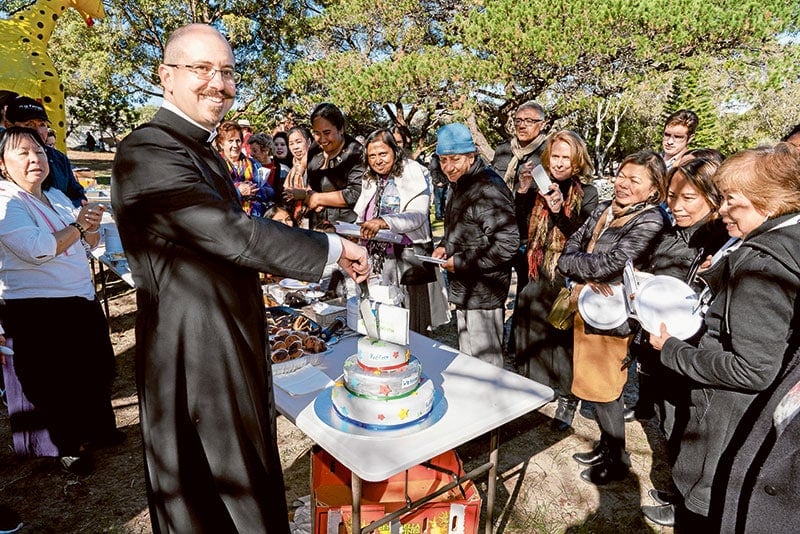
Like the patriarchs, a priest is meant to be a father to his people. What’s wrong with calling him that?
I’ve been wanting to write for some time about the whole push towards addressing priests by their first name, and not ‘Father.’ While he is not the sole inspiration for this column, a recent article written by New Zealand Cardinal John Dew on the topic summarised the issue so succinctly that it is a good impetus for discussion.
In his April 2019 newsletter, Cardinal Dew wrote that after reading an article by French Priest Father Jean-Pierre Roche, he now wonders why priests are called “Father,” and, following Father Roche’s line of argument, gave three reasons why addressing priests as “Father” should perhaps be a thing of the past.
Firstly, His Eminence mentioned Christ’s exhortation in St Matthew’s Gospel to not call anyone on earth ‘Father’ (Matthew 23:8-9), and said that this usurpation of the place of God can sometimes lead to clericalism.
Secondly, he said, calling priests “Father” indicates a parent-child relationship. “It is not possible to have equal relationships between adults who are brothers and sisters if we call one of them “Father”, he wrote.
“We all share the dignity of the daughters and sons of God.” Finally, Cardinal Dew said that the practice can be unhealthy because “it becomes an expression of dependence which is based on a false and unreal idea of obedience.”
With due respect to the Cardinal, and to the many priests who agree with him, I would like to provide three reasons why the practice should be maintained.
Firstly, it holds a level of formality that I believe is more important in our times than it has been in previous times. For those who listened to the testimony before the Royal Commission, too many perpetrator priests would groom not just children but entire families by trying to behave like just another member of the family. The formality was replaced by a sense of familiarity, making it easier for them to prey on vulnerable children. Maintaining the title of “Father” is one way to create a separation between the priest and the lay person where such familiarity is less likely to occur.
Unfortunately, a number of those within the Royal Commission characterised titles and clerical dress and other “formalities” as signs of a “clericalism” that contribute to a culture of abuse rather than protecting against it, and I think this was incorrect. Sometimes, the formality helps.
‘Clericalism’ does exist, to be sure. It manifests in an attitude of a person insisting on having things their own way, and it can just as easily be found in a priest who demands being called by his first name as it can in a priest who insists on being called “Father.”
However the title of ‘Father’ is a reminder to the priest of his role. I agree with Cardinal Dew that using the title “Father” can indicate a parent-child relationship, but this is less about the exercise of authority by the priest and more about the solemn responsibility he has to care for those entrusted to him.
In a parent-child relationship, it’s clear the parent who must be the protector and, if necessary, lay down their life to keep the children safe.
So too with a priest; addressing him as “Father” is a constant reminder of this. A priest might prefer that his friends or parishioners call him by his first name, and that’s fine.
But I have known some priests who absolutely refuse to let any member of the faithful call them “Father.” To me, this isn’t a sign of friendship or equality, but a rejection of a relationship to which the faithful have a right.
And finally, it better reflects reality. Calling a priest “Father” is not an honourific; it is his identity. And calling him “Father” acknowledges the truth of that identity.
Don’t get me wrong; if a priest prefers to be called by his first name, then I will happily do it out of respect. It is quite impolite, I think, to insist on addressing someone in a manner which they do not appreciate. In the same way, if I were ever to meet Bruce Jenner, and he insisted on being called “Caitlyn,” then I would honour that request.
Not because it reflects reality, but Bruce’s identity crisis is not going to be fixed by my persistence. In truth, though, Bruce is no more Caitlin than Cardinal Dew is simply “John.”
